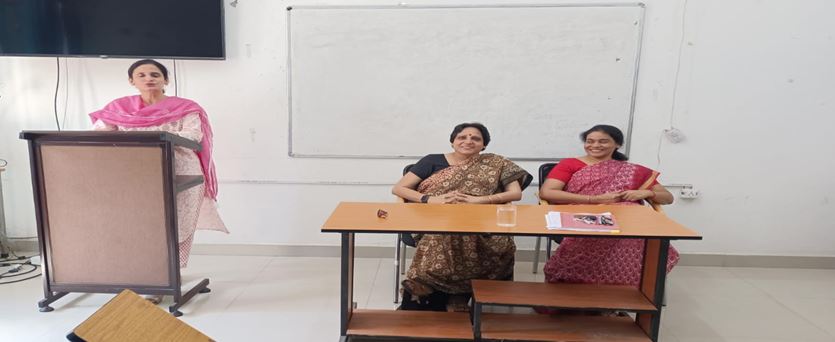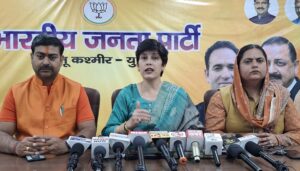Jammu University , Dept of Psychology organized an insightful interactive session on the topic “Counselling Skills”
Jammu, August 28: The Department of Psychology, University of Jammu organized an insightful interactive session on the topic “Counselling Skills”. The event featured Dr. Vidhu Mohan, an esteemed Associate Professor from the Department of Psychology, Punjabi University Patiala, as the resource person. The session started with a welcome note by Dr. Sarita Sood, Assistant Professor, Department of Psychology, University of Jammu. Prof. Sangita Gupta, Dean, Faculty of Social Sciences and I/C HOD, Department of Psychology also graced the occasion with her presence.

Dr. Vidhu explored the crucial aspects of subjectivity and objectivity in counselling interactions. Drawing from her profound expertises, she elucidated how understanding and managing one’s own biases and perspectives play a pivotal role in creating a safe and non-judgemental space for clients. An integral aspect of effective counselling, as highlighted by Dr. Mohan, is the art of active listening. She detailed how genuine and attentive listening fosters a strong rapport between the counsellor and the client, leading to more meaningful and productive session. Through examples, she demonstrated the power of active listening in building trust. She further elaborated on the core conditions of counselling i.e. empathy, genuineness and unconditional positive regard.
The interactive nature of the session allowed participants to engage with Dr. Mohan and pose questions that enriched the discourse. Her ability to bridge theoretical concepts with real-world scenarios resonated with both aspiring psychologists and seasoned professionals in attendance. The discussion provided attendees with a deeper understanding of how these factors can impact the efficacy of counselling sessions. As the session drew to a close, Dr. Vidhu shed light on the concept of Cognitive Behavioural Therapy (CBT). She expounded on CBT’s principles and how it aids in addressing various psychological challenges by altering negative thought patterns and behaviours.
The seminar saw a robust participation not only from students but also from scholars and esteemed faculty members.
(NOTE: PRESS RELEASE PUBLISHED AS RECEIVED)






